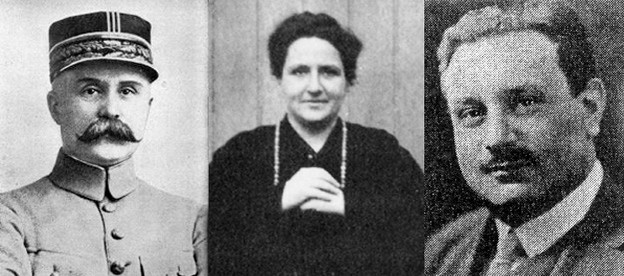A response to 'Gertrude Stein's Translations of Speeches by Philippe Petain'

Fascinating indeed. My own guess — (I guess we’re all guessing) — is that Gertrude, a political naïf capable of only rough calculation re: nuance in current (’39, ’40, ’41 etc) winds of doctrine, and with very genuine affection for Fay — a very affable gentleman indeed, (if you remember our brief meeting with him in Paris), and his returned affection for her, his persuasion to do a friend a favor and say nice things — stretching conscience no more than her willingness would permit — to help his dear friend by translating speeches that might show him in his best light for Americans (faced with defeat and Nazi military invasion, Petain was, after all, saying nice things to shore up his nation’s continuing pride in itself even in a time of terrible adversity), and not until the reality of the Occupation, the deportations, the clouds of war, and its meaning for her, given her lifelong American at-one-ness did she lose enthusiasm and feel distaste for the task and took occasion to let the obligation sort of fade away. Thinking of the whole incident retrospectively in the Janet Malcolm vein, Gertrude should have bravely and publicly denounced Fay for getting her into this evil, evil business, bravely and publicly denounced Petain as well, and so inviting her own deportation and demise, but after that outcome, knowing inward reward, moral cleansing, and Pyrrhic victory. The movie version. My guess is — to come back to my guess — that to put political and moral weight on this episode to Gertrude’s shame is to lose all sense of normal human behavior and its moderate demands on political propriety. To ask of private conduct that it be appraised from the perspective of world-historical events is to pretend that everybody is obliged to behave by taking into account the perpetual glare of Heaven’s own Book of Political Virtues, and heeding its call, go willingly into the flames. If Gertrude didn’t have pristine political virtue, she did have common sense.
A dossier
Edited by Charles Bernstein